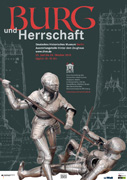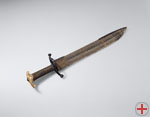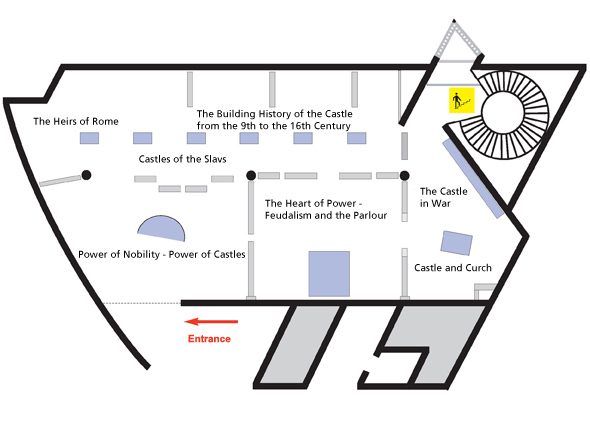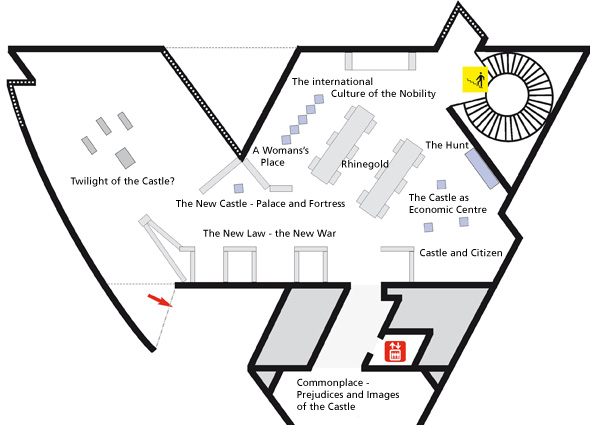



The hunt is the oldest form of procuring meat,
but in the Middle Ages the right to practise it
depended on certain prerequisites. It was originally
bound to property ownership, but all freemen were
allowed to hunt. The king alone had the privilege of placing
a ban on forest lands where he had the sole right to hunt.
 In the 13th century this sovereign right devolved upon
the forward-striving territories as fiefs. Members of
monasteries and inhabitants of the cities were excluded
from the hunt. Peasants were only permitted to control
vermin and participate in the hunting of wolves and bears.
The hunt became the privilege of the nobles,
and its exercise served to demonstrate the legal situation
and repudiate the claims of outside parties.
In any case, game played only a secondary role
in the diet of the castle inhabitants.
Special hunting weapons were only developed toward
the end of the Middle Ages. Before that the arms used in
the hunt were the same as those employed in war.
In the 13th century this sovereign right devolved upon
the forward-striving territories as fiefs. Members of
monasteries and inhabitants of the cities were excluded
from the hunt. Peasants were only permitted to control
vermin and participate in the hunting of wolves and bears.
The hunt became the privilege of the nobles,
and its exercise served to demonstrate the legal situation
and repudiate the claims of outside parties.
In any case, game played only a secondary role
in the diet of the castle inhabitants.
Special hunting weapons were only developed toward
the end of the Middle Ages. Before that the arms used in
the hunt were the same as those employed in war.


